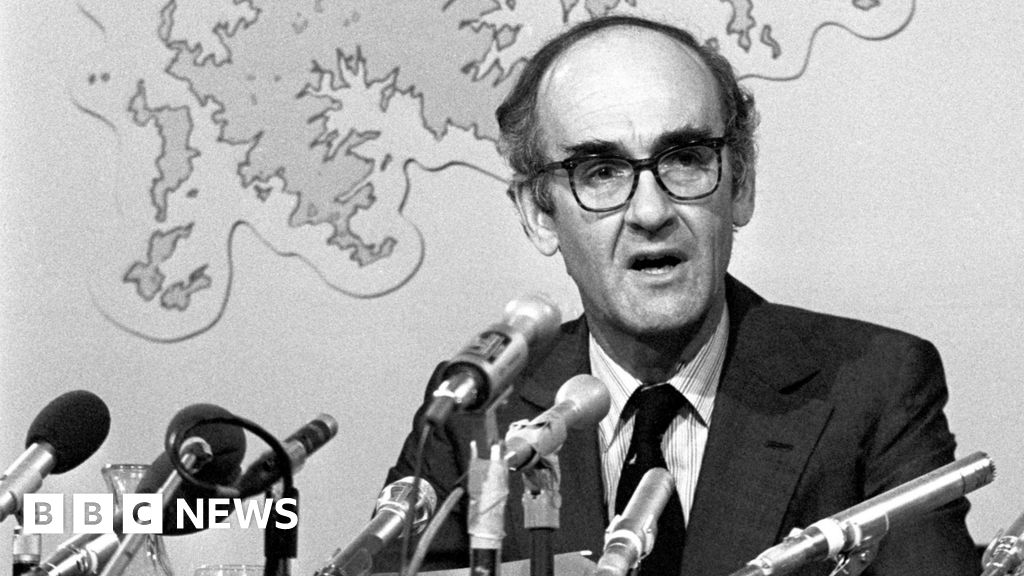Former Defence Secretary John Nott dies aged 92

Born in 1932, he attended Kings Mead Schools, Steaford, Bradfield College and Trinity College Cambridge.
He also served as a lieutenant in the Gurkha Rifles, fighting in the Malayan Emergency, a communist-inspired revolt against the British colonial authorities.
In the 1966 election, he won St Ives for the National Liberals, a party which merged with the Conservatives two years later.
He slowly climbed the parliamentary ladder and in 1981, Margaret Thatcher appointed him as her defence secretary.
Over a year into the job he, along with the rest of the British government, was largely taken by surprise when the Falkland Islands were attacked by Argentina, who claim the territory as their own.
Sir John faced fierce criticism in the House of Commons for failing to foresee the attack and leaving the islands vulnerable to invasion.
Already bruised by rows over defence spending cuts the year before, he pleaded with Thatcher to be allowed to step down.
While she accepted the resignation of Lord Carrington, foreign secretary at the time, she refused to let Sir John go saying “she could not possibly accept” when the British taskforce was still carrying out its operation to retake the islands.
Initially Sir John had been sceptical that the UK could regain the territory, however, his doubts were soon dispelled and later praised the deployment as “a remarkable achievement”.
Speaking to the BBC in 2002, he rejected criticism of the infamous sinking of the Argentine ship, the Belgrano, during which 323 sailors died.
“We didn’t start the war – there was a great army of people who tried to somehow blame the war on us. (But) we were negotiating peacefully with the Argentinians,” he said.
“It was a terrible tragedy. I was shocked when all those Argentinian soldiers died. It was terrible really.”
However, he said that after the incident the Argentine Navy was never put to sea, adding: “If we had had to contend against not only the very brave Argentine pilots but against the Argentine navy it would have been very much more difficult.”
Following Britain’s victory June 1982, Sir John again asked to be allowed to resign and eventually got his way in 1983.
Related
Youth football teams hold minute’s silence for 10-year-old Poppy Atkinson
Youth football teams and grassroots clubs across the country have held a minute’s silence at the start of their games to commemorate a 10-year-old girl who di
Girl’s death sparks minute’s silence at football matches nationwide
10-year-old Poppy Atkinson was killed when she was struck by a car during a training session at Kendal Rugby Club in Cumbria. Clubs from Leeds to London
Liverpool fans’ Uefa claim can be heard in England, judge…
The high court, sitting in Liverpool, heard Uefa had relied upon the principle that English courts will not inquire into the legality of actions by foreign gove
Alan Shearer’s Premier League predictions including Manchester United vs Arsenal
Caption: Alan Shearer?s Premier League predictions credit: Getty / Metro After some impressive results for English sides in Europe the focus is












